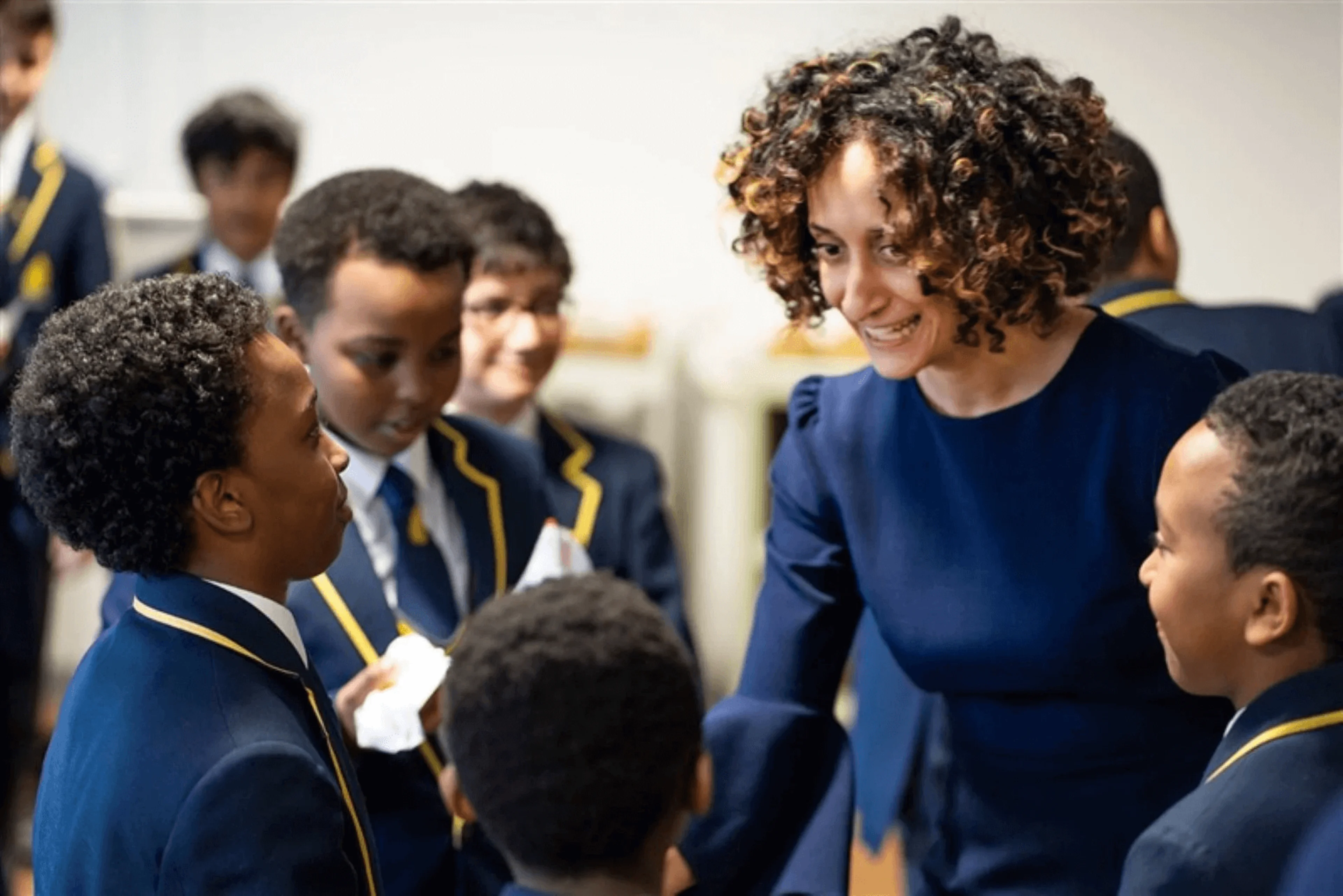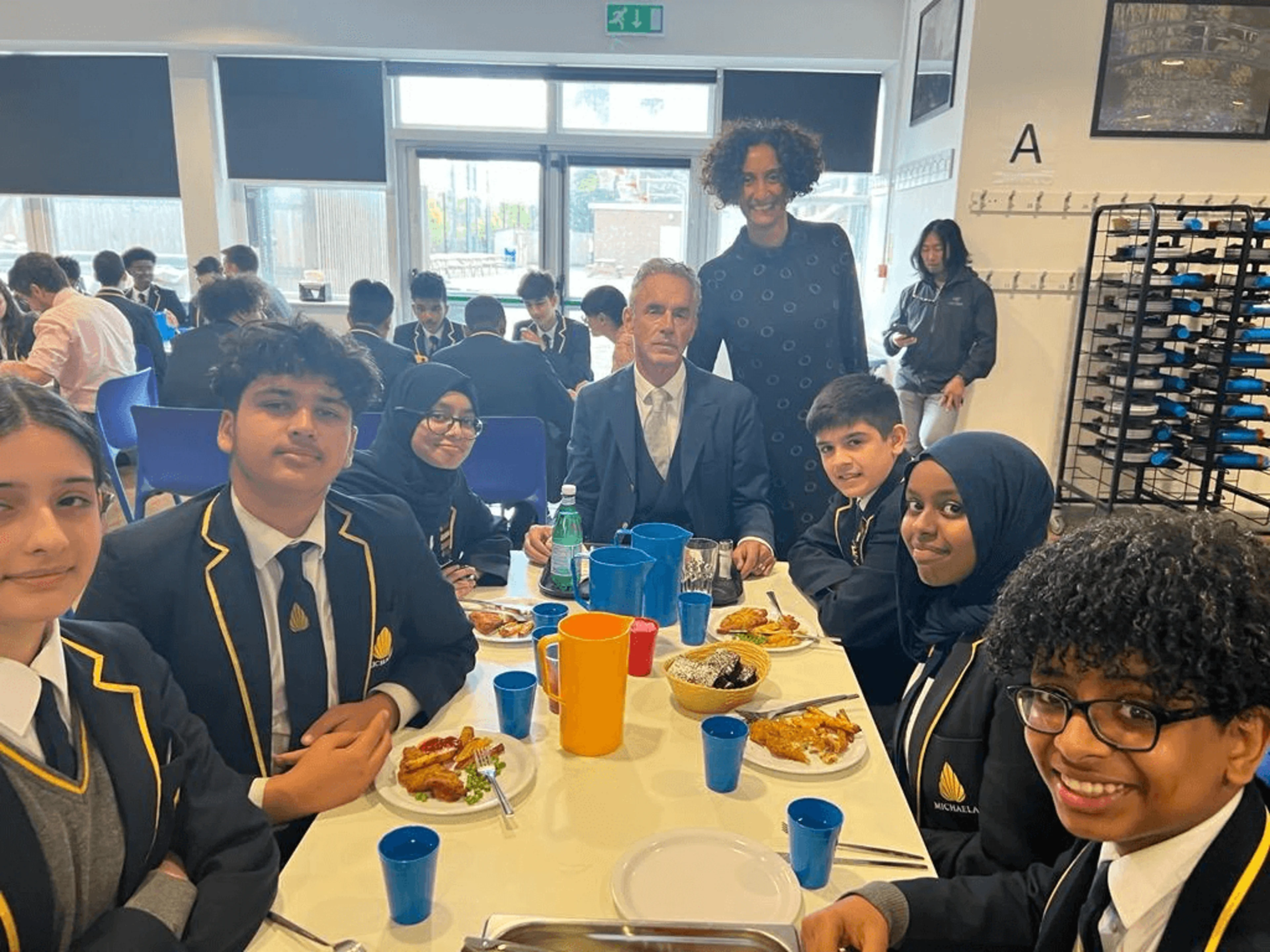Why I'm glad I went to a school with strict rules


The Michaela Community School in Wembley – Britain’s strictest school, according to headlines – is no stranger to criticism. Nor is its headmistress, Katharine Birbalsingh. The social mobility tsar shot to fame after speaking at the Conservative Party conference in 2010, where she claimed that ‘the system is broken because it keeps poor children poor’. Since then, she has become known for her outspoken views on how modern culture negatively impacts education, and indeed society at large. These opinions have gained her some influential friends, but numerous enemies too. In January, Birbalsingh came under fire for suggesting that parents ought to be taking an active role in their children’s learning, and more recently, her vision of social mobility sparked outrage in the press and on social media.
A teacher who found the current education system deficient enough to have started up her own free school is never going to be popular with everyone, especially if she styles herself as a ‘small c conservative’ (the Tories aren’t traditional enough, she says) and endorses methods that wouldn’t have been out of place in the classrooms of 1872. There is something of Charlotte Bronte’s Mr Brocklehurst, the tyrannical headmaster who chokes all warmth and happiness out of his own establishment, Lowood school, in the idea of giving a pupil detention for forgetting their second pencil.
And yet Michaela is no Lowood. The school was rated outstanding by Ofsted in all areas, from effectiveness of leadership and management to outcomes for pupils. Strikingly, the report notes that students are strongly supported by staff in their ‘personal, social and emotional development’: they become keen readers, confident speakers, and ambitious achievers, participating with energy in their academic and extracurricular activities alike. The only issue flagged for improvement was the school’s provision of physical education, which has recently been limited due to reduced access to external sporting facilities.

None of the students in the recent ITV documentary, Britain’s Strictest Headmistress, seemed unhappy. They responded to interview questions with a spirited defence of Birbalsingh’s outlook. As they cheerfully queued up to hand in their smartphones as part of the school’s voluntary ‘digital detox’ scheme, there was a real sense of understanding among them that the rules were put in place to help them thrive – not to hold them back.
Gratitude is another key part of education at Michaela. Five minutes are reserved at every lunchtime for students to express an ‘appreciation’, which encourages them to think positively about what they are given in their daily lives: encouragement from their parents, a particularly good lesson from a teacher, or even a detention. Outlandish as these methods might be, they clearly foster results. As the Ofsted report and multiple visitors to the school have noted, students at Michaela are joyful, polite, and perhaps most impressively, kind to one another.
A disciplined environment, with strict regulations and limited access to technology is, according to Michaela’s teachers, the best recipe for a safe environment. I know from my own experience that this is true: I went to a similar school myself between the ages of twelve and sixteen. Although its location was quite different from Michaela’s (it was in rural France as opposed to central London), we handed in our phones upon arrival, set the tables at mealtimes, and were required to stand up when our teachers arrived. I can now admit to whispering in the corridors when I knew I could get away with it, but I still look back on my years there as among the happiest of my life. Of all the different schools I attended, it was the only one where I knew that bullying, for example, or losing another one of my toenails in the daily stampede towards the cafeteria, weren’t things that I needed to worry about. There is much to be said for dealing with these kinds of problems by making sure that there isn’t any room for them to occur in the first place.
To admit that she is right would mean recognising that there is something amiss with our education system and the principles shaping it.
However, criticisms of Birbalsingh and her methods go far beyond the issue of choosing one set of classroom management techniques over another. They are, rather, related to the matter of what discipline means within an educational setting, and of the purpose it serves. Birbalsingh’s approach tackles the formation of each student’s character within a wider social context. She places enormous importance on the role of individuals in overcoming systemic disadvantages in their own lives – an attitude profoundly shaped by her own experiences teaching underprivileged pupils over the years. 99.2% of Michaela students come from ethnic minority backgrounds (5% higher than the average across the ten closest surrounding schools), and almost a quarter of them are eligible for free school meals.
Though recognising these drawbacks and how they affect her students, Birbalsingh insists that modern discourse focuses upon them too heavily, removing any hope that these can be surmounted on an individual level, and serving in the end only to ease the guilt of the privileged whilst creating a “victim mentality” which discourages disadvantaged students from even attempting to excel. In this area too, Birbalsingh’s outlook appears to have brought about astounding success: The Schools Guide awarded Michaela a score of 100% in its ‘progress’ category, which considers the levels of academic improvement made by students between joining the school and sitting their GCSEs and A-levels. The schools rated highest in this category are those that take on low-achieving pupils and succeed in helping them to obtain excellent results. The accomplishments of Michaela students, compared to other schools in the area and indeed considered on their own, seem to vindicate their headmistress’ conservative attitudes in the world of education.
It is the paradox of Katharine Birbalsingh that makes her so controversial: she achieves the results coveted by progressives through espousing traditional values with a rigour that initially makes you flinch. A simple overview of her school’s consistently stellar achievements indicates that there must be something to this approach, but to admit that she is right would mean recognising that there is something amiss with our education system and the principles shaping it.

After all, education is a matter that touches all other areas of social and cultural policy: the question of what students learn, how they learn it, and the environments in which they do so encompasses issues from the philosophical to the political. So, what can we learn from Birbalsingh’s success?
For one thing, we might learn not to be afraid of tradition. Since the ’60s, we have been a culture obsessed with the new, to the point where ‘old-fashioned’ is almost synonymous with ‘bad’ or ‘ineffective’. To lose some of this obsession wouldn’t mean idealising the past, but instead learning to treasure what works whilst remaining flexible enough to recognise problems and implement change where it is needed. This is particularly important when working with children and teenagers, who by nature require consistency blended carefully with adaptability. Although education is shaped by ideologies to a certain extent, the unbending need to prove a political point within it hampers the possibility of being able to provide this blend – with effects that then feed into every aspect of life. Birbalsingh has been criticised for adhering too austerely to the precepts of the past, but it is possible that in abandoning them, we have moved too far in the opposite direction, and thus become far truer examples of the very rigidity of which she is frequently accused. This would account for the torrents of abuse that she faced in the years following her speech at the Conservative Party conference, and that she and her staff continue to experience over a decade later.
Michaela’s results since its earliest days have shown that traditional values and firm discipline can play an important role in helping to narrow the achievement gap between disadvantaged students and their more privileged counterparts. Now more than ever, it is critical to pay careful attention to how these results have been achieved. To dismiss Katharine Birbalsingh and the methods she has used to provide hundreds of young people with an excellent education, or worse, to simply to label them as tyrannical, would mean denying countless other students the chance to benefit from similar opportunities.
Written by
Laura CalnanLuxembourg-born history student based in Scotland. Interested in current affairs and history's influence upon the modern world. Rarely separated from a cup of tea.
Read next
Are secondary schools second-rate? Let’s privatise them

Archie Rankin
Forcing 18-year-olds to study maths is a bad idea

Hannah Leslie
What do A-level results and Bridgerton have in common?

Archie Rankin
Weekly emails
Get more from Laura
The Fledger was born out of a deep-seated belief in the power of young voices. Get relevant views on topics you care about direct to your inbox each week.
Write at The Fledger
Disagree with Laura?
Have an article in mind? The Fledger is open to voices from all backgrounds. Get in touch and give your words flight.
Write the Contrast